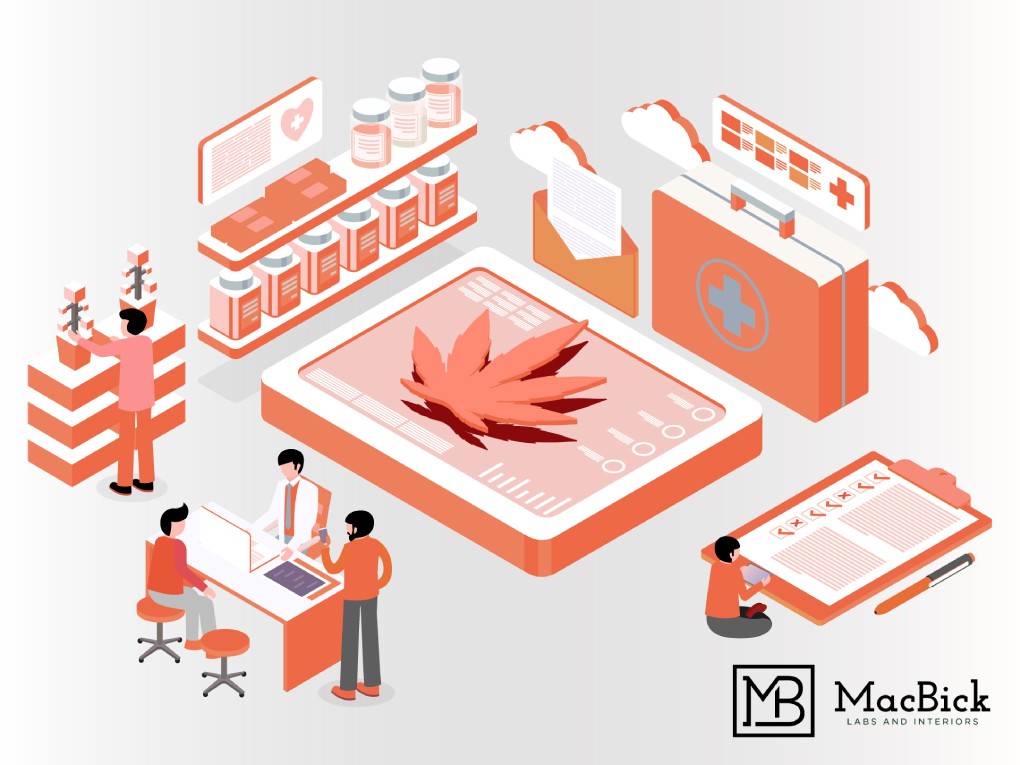Cannabis is a hot market right now, despite the confusion of the legality in the state vs. federal government. Some predict that the federal legislation will come eventually, creating an even bigger market while many in the industry notice a saturation and expect many cannabis companies to go out of business in their first 18 months.
Legal issues aside, breaking into the cannabis market is a costly endeavor but the saying goes that with great risk can come great reward. If you’re considering entering the cannabis market or you’re just getting started, here are some of the major things to consider.
SCIENCE
For some this is obvious, for many it is not, but there’s a lot of scientific research, development, and testing that goes into developing cannabis products – botany, microbiology, and food science, just to name a few.
When we’re talking about everything from topical CBD lotions to ingestible CBD oil, to marijuana flower, edibles, teas, and much more, there are different processes to develop and test each of these to ensure they’re safe for human use – some are even developed for pets!
TYPES OF CANNABIS LABS
Soil, Seed, + Fertilizer Testing (also state agriculture labs where it has been legalized)
Research
Pharmaceutical
QC Testing + Certification
Drug Testing/Pain Management
Clinical Testing
TESTING LABS
Before, during, and after products are developed, they go through testing that covers a wide range of lab functions. Some of the common testing methods include:
- Residual Solvent Analysis: ensuring that the solvents used in extraction are removed as much as possible
- Contamination: ensuring the products hasn’t been cross-contaminated by humans, other products, surfaces, floors, etc.
- Microbial Testing: ensuring the sample hasn’t been exposed to microbes such as E.coli, Clostridium botulinum, and Pseudomonas aeruginosa.
- Potency: testing for THC, CBD, and CBG – key for end users to know what they are buying and the effects it may have on them. CBD does not have a physical “high” effect so if a person were to buy CBD that actually contained THC, they would be in for a big surprise.
- Terpenes: fragrance and flavor compound testing to determine the product’s flavor profile.
EQUIPMENT
Equipment can be a big expense as well. Chromatography is key to testing and, depending on the needs and requirements can be done through high-pressure liquid chromatography, gas chromatography, or thin layer chromatography. A mass spectrometer is used for pesticide testing along with a thermal conductivity detector. PCR (polymerase chain reaction) machines rapidly quantify DNA molecules, precisely measure fungus, yeast, mold, and other contaminants, and are used in terpene and strain testing as well.
BUILDING VS. LEASING VS. OUTSOURCING
A big consideration when starting a cannabis company is where the lab space will be and who will operate it.
-
- Buy a building, build a brand new lab. This is the most expensive option but provides the most control, flexibility, and scalability. In this case, all plumbing and electrical work is subject to lab safety standards, and all furniture, equipment, and instrumentation will have to be purchased.
- Lease existing lab space. While this option still requires some build out based on the unique workflow of the lab, at least some furniture and fixtures may be included. Purchasing most equipment, instruments, and consumables will still need to be purchased.
- Outsource laboratory functions. This is the least risky option due to the exponential drop in overhead with the trade-off being less control and flexibility. That said, it can also lower risk in the early stages of the company because you’ll be working with the experts who do this every day.
- There are also options for sharing space including incubators so be sure to research all of the options and weigh the risks associated with each.
CONCLUSION
Cannabis profitability may ebb and flow while the industry sorts out the details around regulations and compliance with both the government and FDA. Starting a cannabis company, especially in states newer to legalization can be extremely lucrative, as long as you right-size your lab and overhead costs. There are numerous cannabis consulting firms these days that can help you get the right set up and develop a go-to-marketing strategy.
If you’re just getting into the cannabis business or looking to build or renovate existing space, reach out to us here or [email protected].


